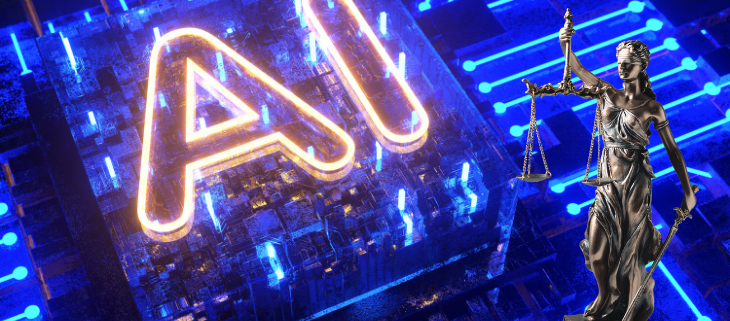AI Chatbots and the Risks to Law Firms
As with many things, advancements in technology and their use in accelerating the workflow processes of law firms have benefits and drawbacks. Our daily lives are surrounded by artificial intelligence, from web surfing to social media posting. How it works is that a computer algorithm learns your interests and behavior to produce content that captures your interest. Despite this, AI isn’t yet capable of accurate results. Before accepting anything completely, it must be checked. Particularly when it comes to a person, thus causing legal and ethical debates about AI-based inferences that are inaccurate or outdated. The consequences of these can be damaging to a person’s professional and personal life. We will explore the downsides of AI chatbots and what to be aware of from a cybersecurity perspective that could potentially harm your firm.
AI-Inferencing & Data Privacy
The AI Inferencing process begins with the data we provide to a third-party application. It can happen when we register for an account or chat via a website chatbot. AI inferences are based on four types of data, provided, observed, derived, and inferred. Observed data is where AI learns more about you and your habits. Derived is when all that information is pulled together to generate a conclusion. As a result, an AI inference is provided. A person’s privacy and protection are protected against data that has been provided, observed, or derived. As for inferred data, there is little protection.
Cybersecurity Risks
In 2018, OpenAI launched the first version of ChatGPT, an AI Chatbot. With AI chatbots, work can be simplified by producing dialogs and essays that look like a human wrote. For it to work, the user enters a prompt, and the chatbot produces the results in response to the prompt. Many law firms have started using this technology to streamline time-consuming tasks and increase workflow. A beta version called GPT-4 was released to subscribers in early 2023. Although the newer version has improved reasoning and visual capabilities, it still has privacy and security issues. In March 2023, OpenAI experienced a data breach that exposed a small amount of Plus subscribers’ information. The breach was due to a vulnerability in the Redis open-source library. It’s important to know that AI chatbots come with security risks, and it is crucial to understand the ways hackers can attack:
- Phishing Emails: In phishing emails, the AI chatbot creates realistic emails encouraging the receiver to engage and click on links that direct them to divulge sensitive information.
- Conversations: The AI Chatbot stores all information users enter, including sensitive details. As a result, the user is entirely unaware that the data is stored. Putting sensitive information at risk from hackers.
- Malicious Coding: Attackers can distribute malicious code by fabricating code libraries using the AI chatbot’s code generation capabilities.
What You Can Do
You can keep your firm safe from intruders by establishing an employee use policy that specifies which applications are permitted. This will reduce the risk of unauthorized applications harming your firm. Secondly, read the Terms and Conditions carefully when signing up for a third-party application. There will be language referencing how data is stored and your legal rights if anything goes wrong with the AI-Chatbot. Understanding third-party applications is essential. Finally, partner with a managed services and security provider that can evaluate AI solutions while reducing your firm’s risk of data exposure or potential lawsuit. AI is a rapidly evolving technology, and many people have questions about it. Learn about AI, cybersecurity, software, applications, and more from our experts at ivionicslegal.com. If you have questions about AI and any risks imposed on your firm, give us a call at 631-257-7100.




Leave a Reply
Want to join the discussion?Feel free to contribute!